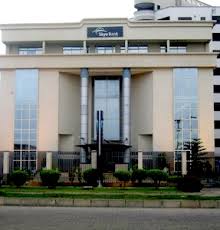So you want to become a lawyer in Nigeria? (ii)
Misbau ‘Mislaw’ Lateef
After a course of study at the Nigeria Law School, the student who passes the final – Bar Part II – examinations receives a certificate from the Council of Legal Education and is then Called to the Nigerian Bar by the Body of Benchers as provided by the Legal Practitioners Act. This is followed by enrolment as a Legal Practitioner at the Supreme Court of Nigeria – as Barrister and Solicitor of that Court. Hence, lawyers Called to the Nigerian Bar are called Barristers and Solicitors of the Supreme Court of Nigeria.
It must also be pointed out here that against the practice in Nigeria where a legal practitioner is enrolled both as barrister and solicitor, a legal practitioner is enrolled in England only as either of both. In other words, a legal practitioner in Nigeria can act both as barrister and solicitor at the same time and for the same or different clients. In England, only barristers appear in Court to represent clients, solicitors do not! Solicitors only take briefs from clients and pass them on to barristers who may then appear in court.
There is however an interesting historical background to the setting up of the Nigerian Law School. Before the setting up of the School, all the persons enrolled to practice law in Nigeria were trained in England mostly as Barristers at the various Inns of Court. There were and still are up till today four Inns of Court in England namely: Lincoln’s Inn, Middle Temple, Gray’s Inn, and Inner Temple. The Inns of Court are the professional associations for barristers in England and Wales. All such barristers must belong to one such association. They have supervisory and disciplinary functions over their members. The Inns also provide libraries, dining facilities and professional accommodation.
These English-trained lawyers did not study the Customary Laws of Nigeria as part of their education even though, customary law was and still is a very important part of the Nigeria Legal system. Apart from this lack of customary law training, there was the general disorientation to be expected from a foreign education and training in a foreign system.
Thus, the Federal Government of Nigeria decided to remedy the situation and in 1958, asked the Attorney-General – himself and Englishman and trained as a lawyer in England – Mr E.T.C. Unsworth to be the chairman of a committee to look into the problem. The report of the committee led to the setting up of the Council of Legal Education and the Nigeria Law School in 1962 when the Legal Education Act was enacted.
The first Director of the Nigerian Law School was an Englishman, Mr. G. Rudd who served from 1962 – 1967. He was followed in succession by Dr. Olakunle Orojo from 1968 – 1976, Mr. Justice J.O. Sofolahan from 1976 – 1978 and the legendry Babatunde Ibironke. SAN who served from 1979 – 1993. Mr Ibironke was succeeded by Chief John Kayode Jegede SAN who headed the Nigeria Law School with the new title of Director-General. Dr. Kole Abayomi, SAN became DG after Chief J.K. Jegede and ran the Law School from October 2004 to November 2005.
The current DG of the School, Dr Maman Tahir, succeeded Chief Dr. Kole Abayomi, SAN as DG in 2005. Although the Federal Government of Nigeria recently approved the sack of the Director-General of the Nigerian Law School and his six deputies, the DG is still to remain in office until a set of new directors take over from him and his deputies.
From 1962 to 1994, the Nigeria Law School had only one campus located in Lagos. Today, the main campus is in Abuja. The other campuses are the old one in Lagos and others in Abuja, Enugu, Kano, Yenagoa and Yola. These campuses are headed by Deputy Directors-General.
Now, take a bow and welcome to the Nigerian Bar!
Established in March 2013, JarusHub is a Nigerian information hub with focus on career and management. It is rated Nigeria's most authoritative destination for online career resources. It parades an array of Nigerian professionals who share their career experiences with a view to bridging career information gap and mentoring a generation to success. Whether you're a student, a recent graduate or an established professional, or even an executive, you will always find something to learn on JarusHub. All enquiries to jarushub@gmail.com or 0808 540 4500. Facebook: www.facebook.com/jarushub; Twitter: @jarushub or @mcjarus.
Attend JarusHub’s 2024 Seplat Assessment Center Coaching
October 29, 2024
5 comments
Let us have your say by leaving a comment belowCancel reply
Recommended For You
-
Career Prospects and Job Opportunities for an Economics Graduate
September 10, 2018 -
How do I recover my N0.5m from Skye Bank?
November 12, 2013









Now I can relate the history of Nigerian law school to those who care to know.
Haa! Mislaw, just take a bow and welcome to the Nigerian Bar..Ok oo..Please do a follow up on the grading system, the “no cooking rules” .’white on black doctrine” and the “fit and proper slogan”..Looking forward to your write up on this..nice summary though..
So where do Nigerian lawyers learn adjourn tactics like fainting, medical travel, missing files etc? surely there must be a curriculum since majority of case take 6years and above.
Why is it that the first thing they argue about is the jurisdiction of the court to hear a case
lol. that was funny.
here is a very good example, after reading this your blog came to my mind lol
http://premiumtimesng.com/news/140775-drama-in-court-over-controversial-apc-suit.html